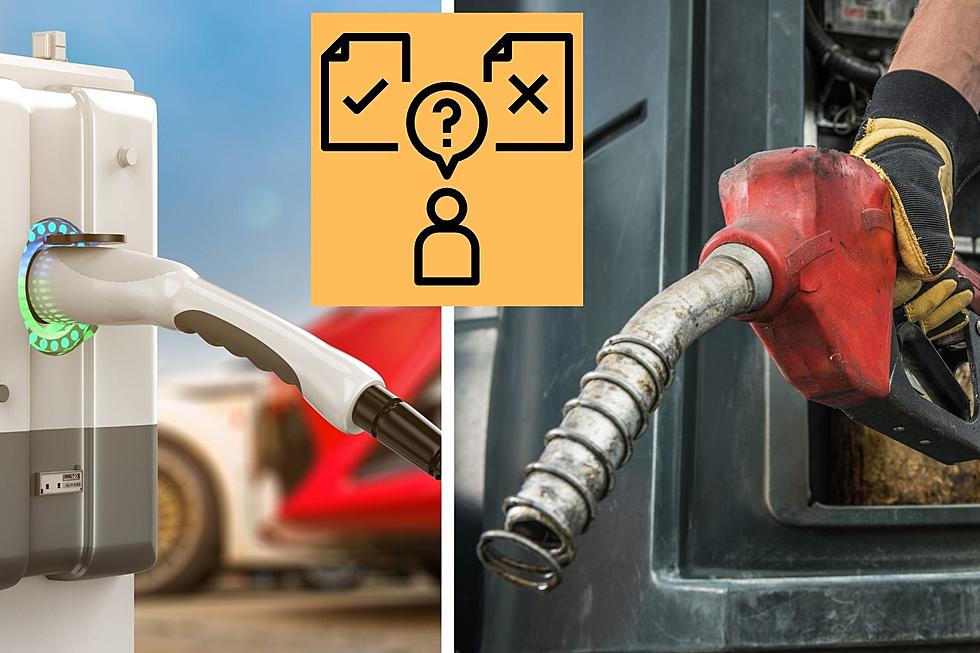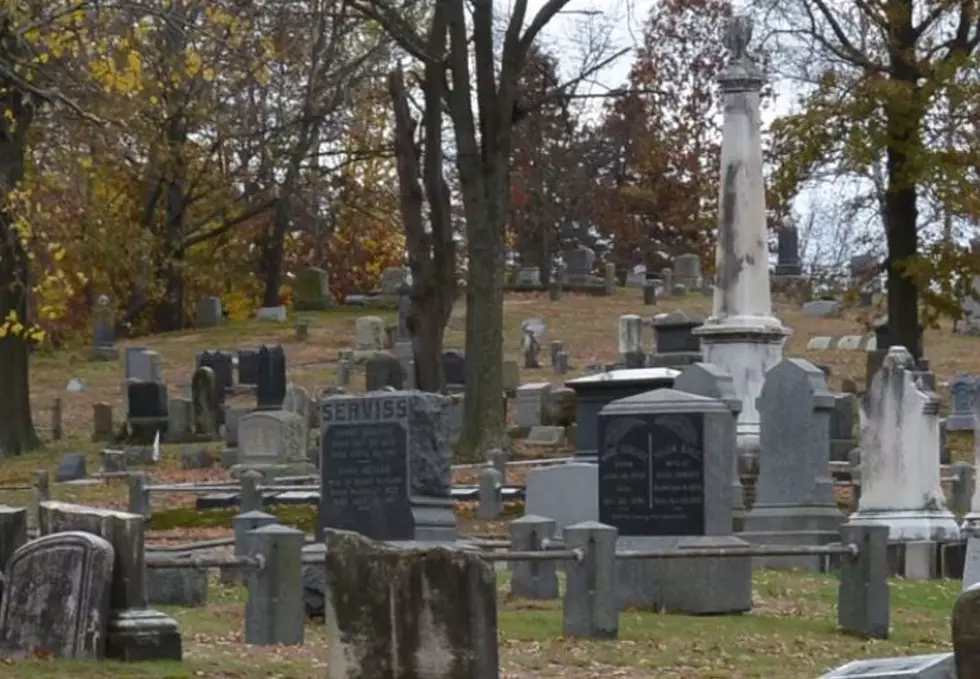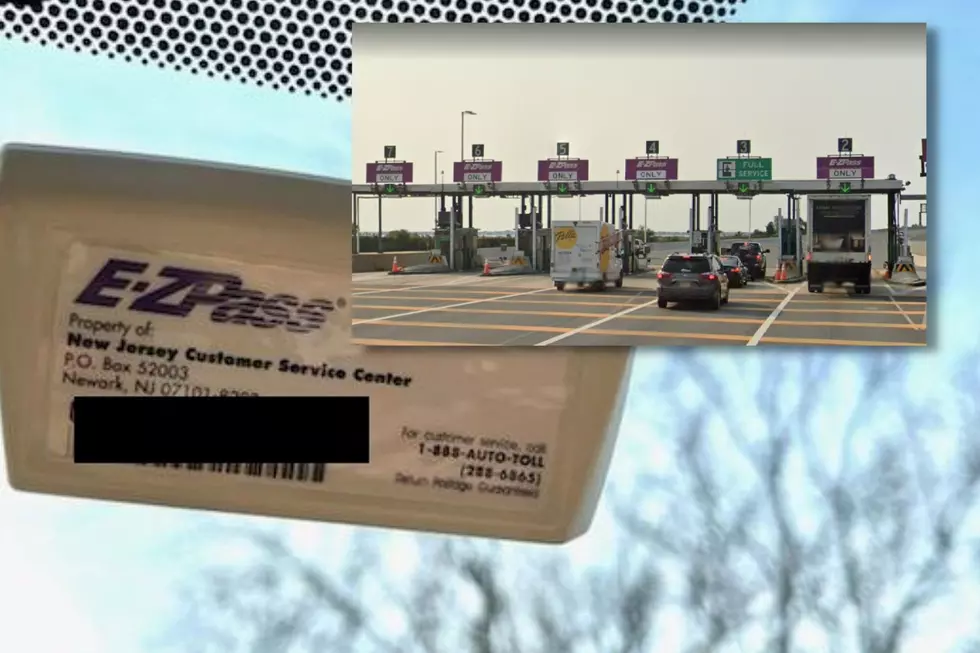
‘Arrogant’ or ‘ambitious’? NJ hears comments on plan to phase out gas cars
🚘 NJ would end sales of new gas-powered cars in 2035
⛽ Supporters say cutting emissions is crucial amid climate crisis
🚦 Critics point to costs, electrical grid, personal choice
A public hearing on the state’s proposed plan to phase out sales of new gas-powered vehicles in 12 years drew more than 50 speakers on Thursday.
Environmental advocates and other stakeholders voiced support for the urgent timeline to reduce greenhouse gas emissions that they said have been the lead cause of the climate crisis.
There were also concerns raised for the ‘aggressive’ timeline, as critics of the mandate said that the infrastructure and supply of electric vehicles (EV) were not close to being ready to handle the change.
Gov. Phil Murphy filed the Advanced Clean Cars II proposal, first adopted by California, with the state Office of Administrative Law in July.
Read More: NJ files plan to phase out new gas-powered vehicle sales
It would require that by 2035, every new light-duty vehicle and a portion of medium-duty vehicles sold in New Jersey be a zero-emission vehicle.
Starting with model year 2027 vehicles, ACCII would call for NJ to have 43% of new car sales be EVs, with a small percentage of hybrids allowed.
Currently, 8% of new car sales in the state are EVs, according to the New Jersey Business and Industry Association.
The state Department of Environmental Protection hosted the hearing on Thursday, run remotely with participants logged in via computer, smart device or by phone.
State Assembly Deputy Speaker John Burzichelli was first to comment, saying he was doing so as a private citizen of Gloucester County.
Burzichelli said he finds the public is very leery of mandates, instead of letting the marketplace dictate what people buy, as infrastructure and technology continue to advance.
He added his household already has an electric vehicle as well as a gas-powered one, both of which are driven regularly, as their choice.
Burzichelli said it is “fairly arrogant of government to tell people what kind of car they can or cannot drive.”
NJBIA Deputy Chief of Government Affairs Ray Cantor said that the proposed ban on new gas-powered cars by 2035 would have negative economic impacts on many residents — including more who would no longer be able to afford to drive.
Cantor said there were also serious issues with the state not having enough electricity and distribution systems on a “larger scale and a neighborhood-type of scale" to support the plan.
“There are a lot of places where you have apartments, condos, densely populated areas, where you know you can’t put enough charging stations in that are convenient,” he continued, “You can’t tell people you need to walk blocks in order to charge their vehicle.”
There were multiple advocates for the plan, including Environment New Jersey Executive Director Doug O’Malley, who said the urgency was especially apparent coming off the hottest global summer on record.
NJ’s transportation sector continues to be the state’s largest source of greenhouse gas emissions, according to New Jersey League of Conservation Voters Environmental Justice Policy Associate Isabel Molina.
She said that this year alone, NJ motorists have collectively traveled over 77 billion miles.
O’Malley echoed that massive impact, adding that the public health risk was also a big issued. He said ozone alert days would double in the near future, if not enough was done to curb gas-powered vehicles.
Another benefit of the clean car proposal would be the creation of good-paying, family-sustaining jobs, according to New Jersey Work Environmental Council Executive Director Debra Coyle, who added “We all know how expensive it is to live here in NJ.”
The coalition of 70 labor, community and environmental organizations has voiced support to prioritize the EV market, which Coyle said is increasingly becoming more affordable for different income levels.
“Entering the Clean Cars program in 2023 would result in reducing light-duty CO2 emissions 72% below 2021 levels by 2050,” according to a statement released by another advocate for the plan, Sierra Club, which emphasized the greatest possible timeline for reducing greenhouse gas emissions.
American electric vehicle maker Rivian had a representative at the hearing, who also applauded the state’s “ambitious” goal.
“Rivian plans to produce 52,000 EVs this year, more than doubling production versus 2022 as we continue to ramp our manufacturing capability in our second year, “ according to Rivian Senior Policy Advisor Tom Van Heeke.
He said the company also has been building a network of DC fast chargers across the country.
That “Rivian adventure network” already has 44 sites already up and running, with more added each week, Van Heeke said.
A coalition of nearly 100 business, labor and nonprofit groups recently sent a letter calling the clean cars proposal “impractical and misguided,” and urging state legislative leaders to take action and halt the rule before it is finalized with its 2035 milestone.
Comments can still be submitted to the DEP on the electric vehicles plan through Oct. 20.
Who has electric vehicles in NJ? Top 21 zip codes for EV registration
Report a correction 👈 | 👉 Contact our newsroom
The Definitive List of The Oddest, Strangest and Downright Filthy Town Names In Every State
LOOK: The 21 most popular ice cream flavors in America
Do You Remember These Nostalgic '90s Cartoons?
More From 94.3 The Point










